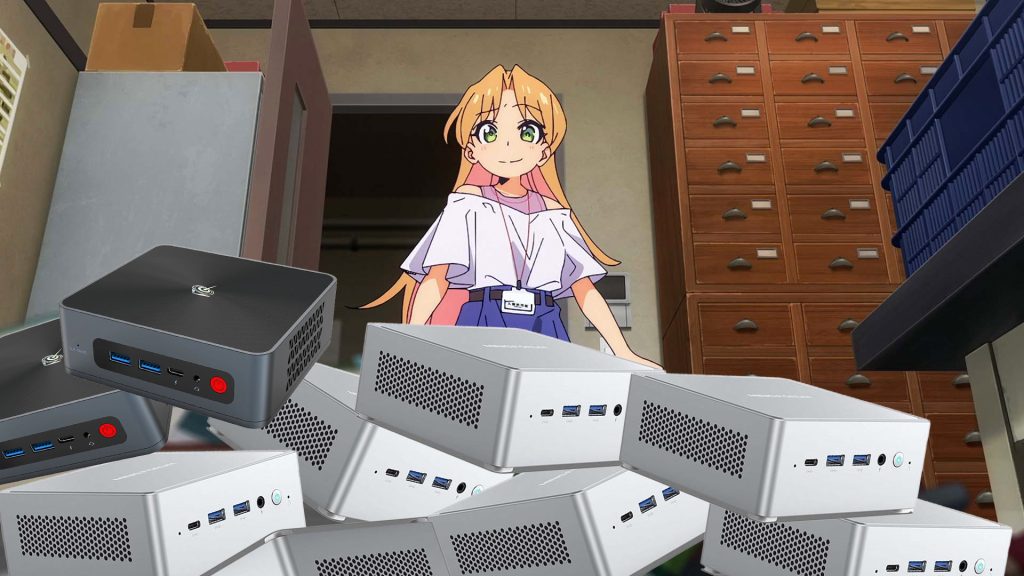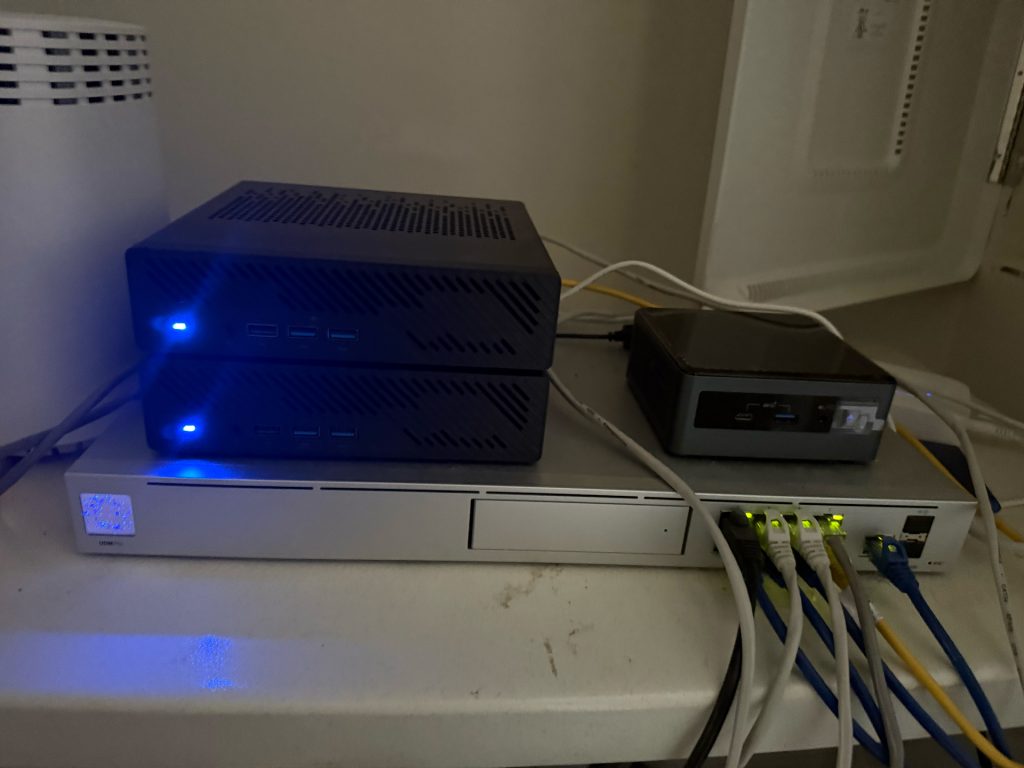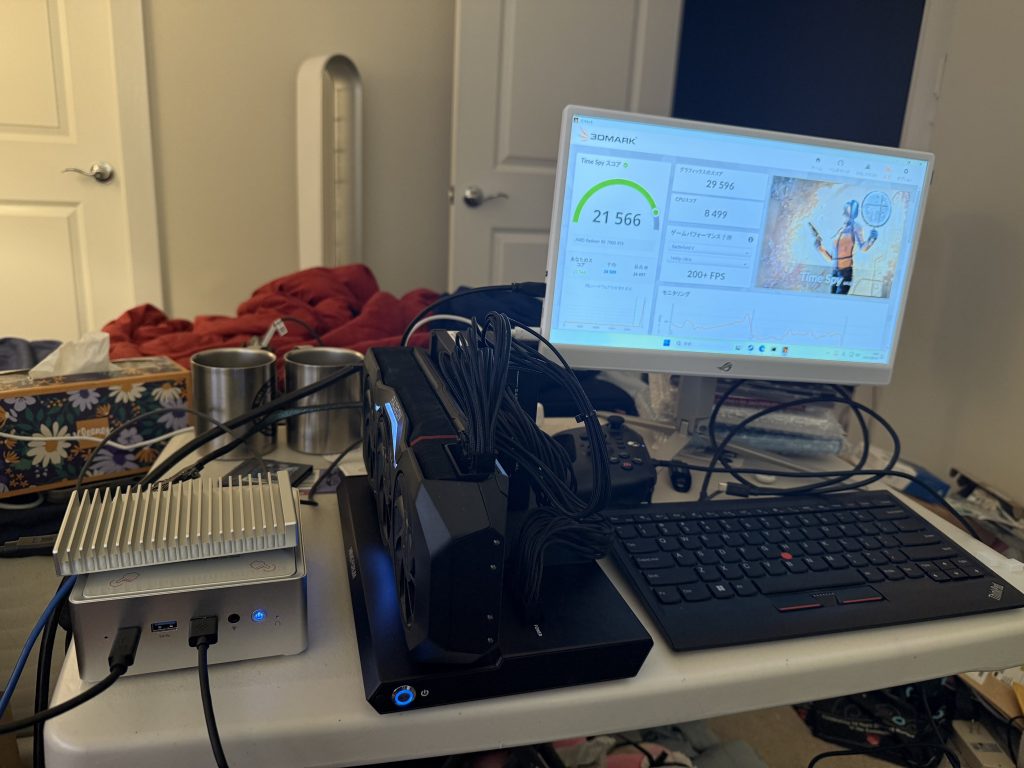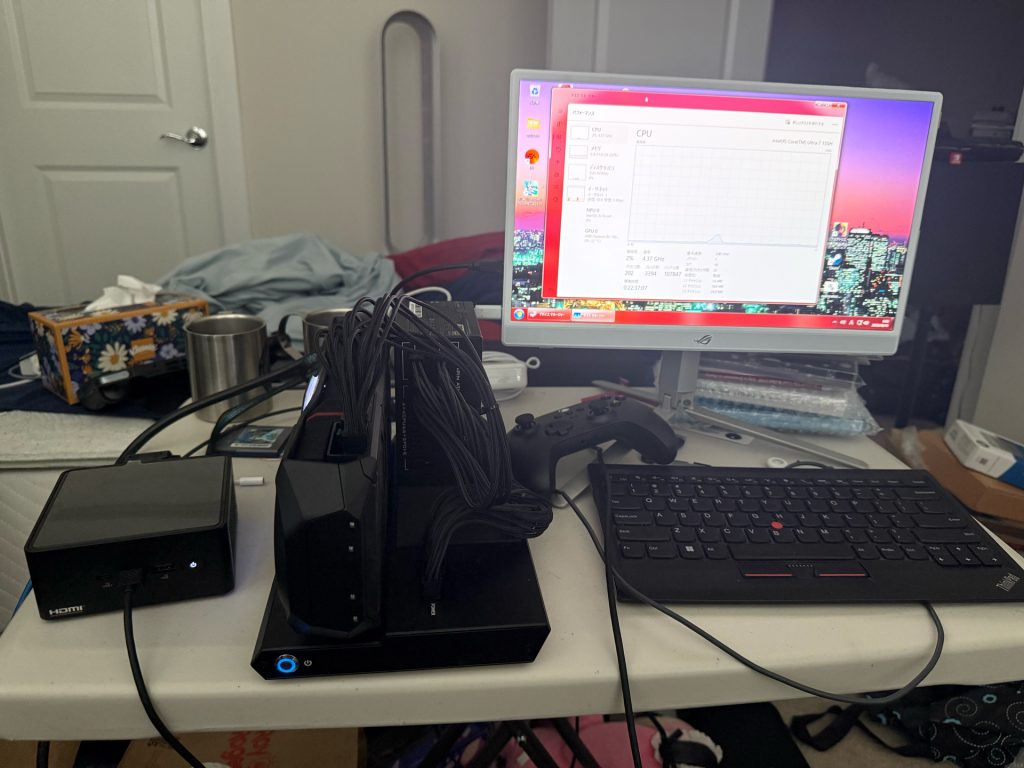
In July, I began overhauling my home lab, anticipating the possibility of my job transitioning from VMWare to Nutanix. Thankfully, Nutanix has a community edition to play around with in a home lab environment. As a result, I needed to get some more mini PCs. I eventually bought two Minisforum A1s to create two of the three nodes needed (the last node is virtualized on the Ryzen 9 5900 X ESXi box, which only hosts Prism Central).
So why use a Mini PC? The main advantages of using them over a whole desktop or rack of servers are that they take up less space and use less energy. Advancements in mobile CPUs make them viable not only for use in a server, but also as a replacement for a whole desktop. These reasons make them popular in home lab setups. Since I live in a townhome, there isn’t much space for a dedicated gaming setup, so a mini PC is the way to go.

Of course, I took parts from a Minisforum NPB6, which was running ESXi, but the RAM and SSD went to a second Minisforum A1, meaning I have a Mini PC I was not using. I considered turning it into a gaming PC, given I have a Radeon RX 7900 XTX that I might use for some projects. The plan is to use an OCULink GPU dock to get better performance out of the GPU. It will be about 5-10% slower compared to being in a full x16 PCIe slot. OCULink is essentially an external PCIe x4 connection that is faster than Thunderbolt 3 and 4, provided it’s PCIe 4.0, but it’s not hot-swappable.

After ordering new RAM, an SSD, a USB4 SSD enclosure, and an OcuLink GPU dock, I put them together. However, I encountered a few issues because Windows 11 Enterprise LTSC wouldn’t boot from the USB4 port, which offers faster speeds. As a result, I had to use the USB 3 port, which is slightly slower. That is okay, until the instability kicks in. It was unstable, freezing when in a game. I, of course, left it on overnight, and when I remote into it, it comes up with a black screen. The GPU wasn’t working again.
 I eventually gave up on the Minisforum and went to something that I can trust: an Intel NUC, or rather an Asus one. I have prior experience with NUCs, as they are reliable machines. My parents bought one for use in the living room that I set up as a cable box replacement with the use of an HD Homerun Prime, which was in service until 2018. The second one, bought in June of 2020 from Microcenter, is a NUC 10 Core i7 Performance model, which was the first real home lab server I bought for VMWare ESXi. It still runs to this day and has been running 24/7 for over 5 years.
I eventually gave up on the Minisforum and went to something that I can trust: an Intel NUC, or rather an Asus one. I have prior experience with NUCs, as they are reliable machines. My parents bought one for use in the living room that I set up as a cable box replacement with the use of an HD Homerun Prime, which was in service until 2018. The second one, bought in June of 2020 from Microcenter, is a NUC 10 Core i7 Performance model, which was the first real home lab server I bought for VMWare ESXi. It still runs to this day and has been running 24/7 for over 5 years.
However, when I wanted to add another Intel mini PC, I found that NUCs are expensive, and Intel has announced that they are no longer making them (Asus now makes them). I chose a Minisforum Venus NPB6 because it offers USB4 and a fast Intel CPU, which is necessary for live migration. However, the flaws became apparent when I made it into a gaming/workstation for Windows-only apps. Well, the first is the instability, which I couldn’t figure out. Also, these models have a lot of complaints of being unreliable.
The problem with most cheap mini PCs from Minisforum, Beelink, Geekom, etc., is that they often lack quality and have poor support. The companies that sell them are Chinese companies, and to get any service, you would have to send them back on your dime and wait a long time to get it fixed. There is also controversy about having to pay a depreciation fee just to get a replacement, at least from Minisforum, which is anti-consumer. Also, they do not stand behind their products, which is a recurring theme not only in the Chinese mini PC space, but also in gaming handhelds. These issues arise from questionable design choices and inadequate quality control, particularly when compared to larger companies like Lenovo, a Chinese company that typically experiences fewer issues and offers customer support across multiple countries.
That said, should you avoid buying them? Well, you have to do your research and figure out if it’s worth the risk to have the extra features that mainstream models don’t have. If you’re looking for a reliable product with good customer service, consider buying from a well-known brand like Apple, Asus, Asrock, Gigabyte, HP, Dell, or Lenovo. That is what I ultimately did as I bought a NUC 14 Pro Tall with an Intel Core Ultra 155h from Microcenter. It performed better than the Minisforum and didn’t crash after an hour of use with an Oculink eGPU. Also, having two NVMe slots means I don’t have to use an external SSD to boot.
While it costs a bit more, at least Asus stands behind its products. Sure, there have been controversies with getting repairs done under warranty, but at least you won’t get ghosted or have to pay for shipping and fees to get your item repaired.
That said, while the mini PCs coming from smaller Chinese companies may look cool, one has to consider the risks and tradeoffs. If you need something more reliable for critical workloads or something of better quality, consider getting a used mini/micro/tiny PC from HP/Dell/Lenovo, or opting for a NUC or NUC-like option from Asus, Asrock, Gigabyte, or MSI. Alternatively, you can just buy a Mac mini or a Mac Studio.
Leave a Reply